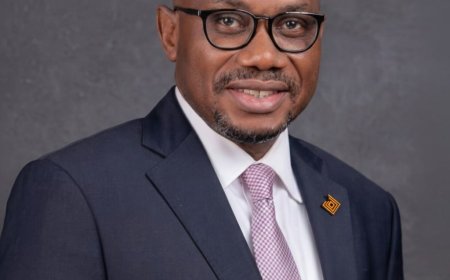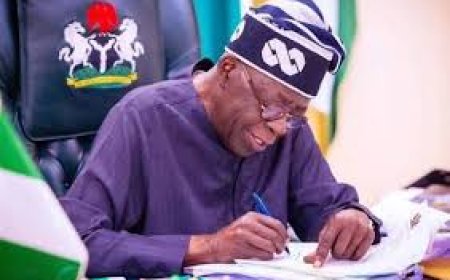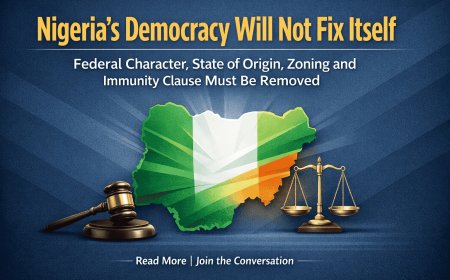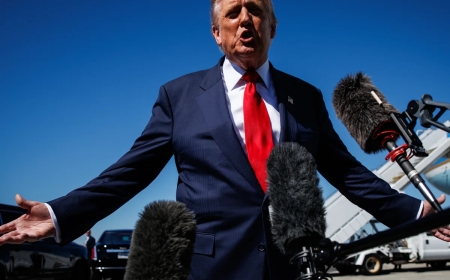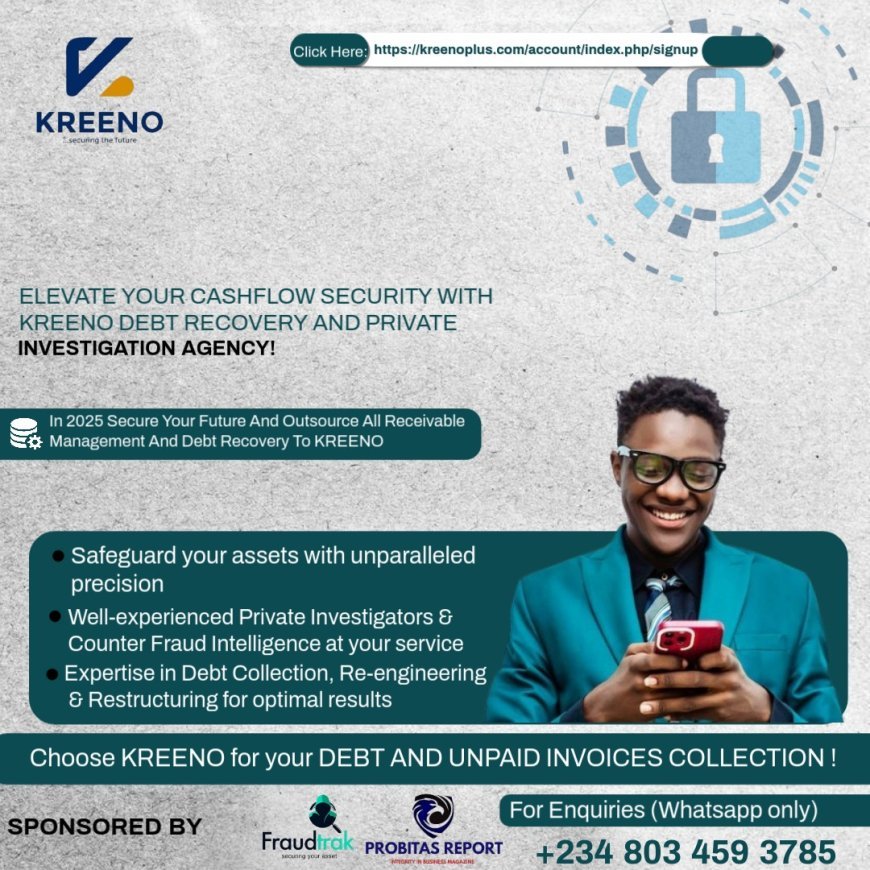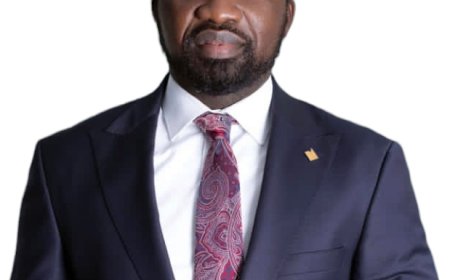When Power Betrays Justice: What the Uche Nnaji Scandal Reveals About Leadership
An incisive editorial exploring the Uche Nnaji scandal as a mirror of Nigeria’s leadership crisis. Dr Ohio O. Ojeagbase examines how power without justice erodes trust, weakens institutions, and threatens the moral foundation of the nation, calling for a revival of integrity in business mentality in political and private sector driven leadership.
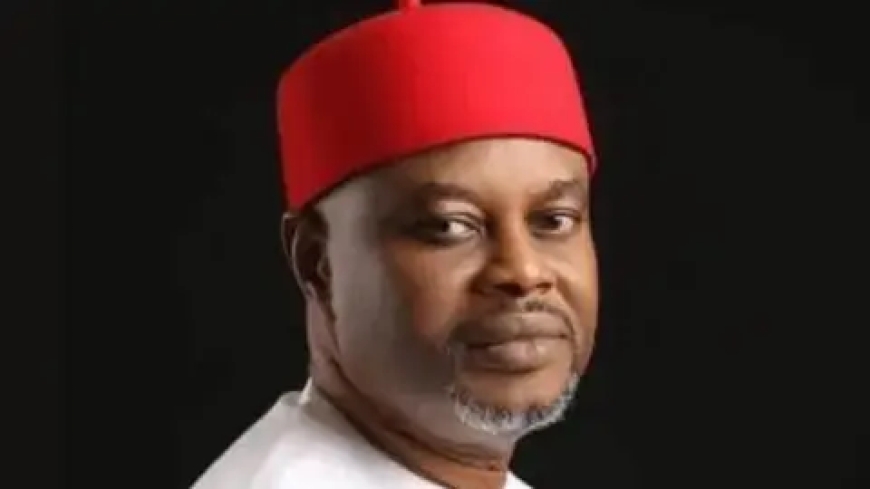
Editorial Board Commentary
By Dr Ohio O. Ojeagbase Publisher, ProbitasReport
Justice and Integrity-In-Business in Power: The Divine Mandate for Leadership
Introduction
Every generation faces the question of what holds a nation together. For some, it is power. For others, wealth or policy. But Scripture teaches that no nation is sustained by power or intellect alone but it is righteousness that exalts a nation. (Proverbs 14:34) In the corridors of leadership, where decisions shape destinies and policies sculpt futures, two pillars must never fall: Justice and Integrity. They are not optional virtues; they are divine mandates. They are the moral architecture upon which God builds lasting kingdoms and just societies. We live in a time when many rise to power through manipulation, deceit, breaching loan contracts, weak decision in mediating just cases, and favoritism. Yet, God reminds us through the prophet Micah: “He has shown you, O man, what is good. And what does the Lord require of you but to do justice, to love mercy, and to walk humbly with your God?” (Micah 6:8) That is not a suggestion that you have an option to act on or not, it is a command.
The alleged crime is FORGERY.
What is Forgery? According to Black’s Law Dictionary, forgery is defined as: “The falsely making or materially altering, with an intent to defraud, any writing which, if genuine, might apparently be of legal efficacy or the foundation of a legal liability.” This definition underscores that forgery involves the deliberate creation or modification of a document to deceive others, with the intent to gain an unlawful advantage or cause harm. In legal contexts, forgery is considered a serious offense due to its potential to undermine trust in legal and financial systems.
In the law of evidence. The fabrication or counterfeiting of evidence. The artful and fraudulent manipulation of physical objects, or the deceitful arrangement of genuine facts or things, in such a manner as to create an erroneous impression or a false inference in the minds of those who may observe them.
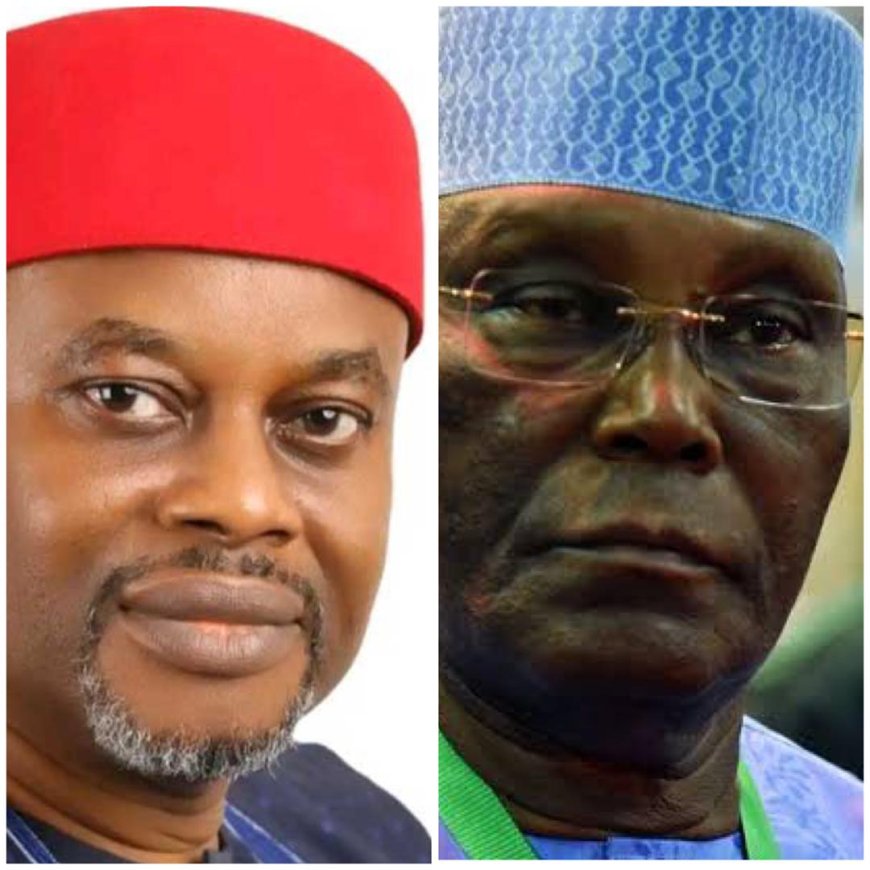
The unfolding controversy surrounding the alleged forgery scandal involving Uche Nnaji, Minister of Innovation, Science and Technology, and the sharp rebuke it drew from former Vice President Atiku Abubakar, has sparked a deeper reflection about truth, integrity, and accountability in Nigeria’s public life.
Atiku’s description of the Tinubu administration as “an assembly of forgers, impostors, and morally bankrupt people” may sound political, yet beneath his rhetoric lies a sobering question that every democracy must confront: What happens when moral character becomes optional for those in power?
Integrity-in-business trait remains the real currency of true leadership. Public office is not a reward for political loyalty or tribal bigotry, it is a sacred trust. When officials falsify credentials to mislead the public, they do not merely damage their personal reputations, they corrode the moral foundations of the nation. Leadership begins with truth, and accountability must be visible and documented if that truth is to have meaning. Words without consequences are hollow, and silence in the face of wrongdoing sends the dangerous signal that integrity-in-business can be negotiated.
For this reason, institutions must function and not flatter. A healthy democracy depends on impartial structures: screening bodies, anti-corruption agencies, and law enforcement institutions that perform their duties without bias or political interference. When these systems are weakened or manipulated, falsehood thrives and public trust decays. We recommend Private Investigators such as KREENO CONSORTIUM to be engaged to complement what the law enforcement authorities do during screening processes.
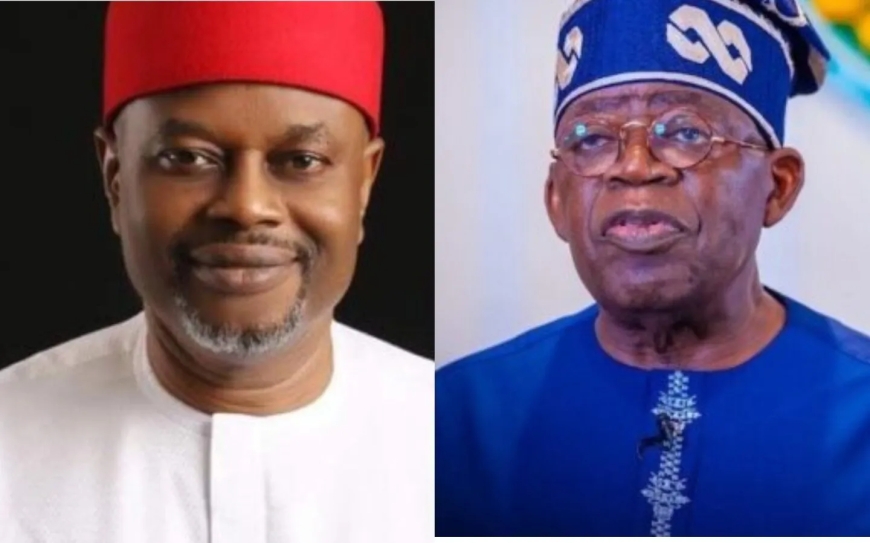
No government can claim moral authority whilst preaching anti-corruption and shielding those who compromise public trust. Hypocrisy erodes credibility faster than scandal itself. Leadership is only as believable as its consistency in the discharge of their duties. Transparency, too, remains a national asset. The people have a right to the truth. When scandals are exposed and handled openly, they do not just punish deceit, they restore confidence in governance in Nigeria. Openness purifies power. It proves that truth is not the enemy of authority but its foundation.
The character of those in power shapes the culture of the nation. When leaders model integrity-in-business mentality, that example resonates through ministries, agencies, communities, religious circles, schools, and the general public. But when deceit is tolerated, it spreads like a contagion, infecting every level of administration and weakening the moral immune system of society. This moment also reminds us that civil vigilance is the lifeline of democracy. Investigative journalism, civic activism, and informed citizens serve as guardians of accountability, ensuring that truth continues to speak even when power wishes it silent.
Ultimately, the lesson from the Uche Nnaji scandal is not about certificates, but about conscience. It is a mirror reflecting the moral decline that occurs when political convenience replaces ethical conviction. For Nigeria to rise, it will take more than policies and promises, it will require leaders who embody integrity-in-business mentality as a way of life.
"If Nigeria is to truly change, we must change the way we do business not just at the top, but in every home, every workplace, and every community. Change must run deep. It must reach our leaders, our marketplaces, our boardrooms, and even the quiet conversations in our homes. This is not about policy alone, it is about a transformation of the heart, a renewal of how we think, how we act, and how we honour the trust placed in us even when parties go into loan contracts and one decides to be "clever" about it using delay tactics of court to prevent criminal prosecution against such party is also a breach of trust. Integrity, accountability, and truth must become the measure of every decision we make. Without these, all reforms will crumble.
"Core values are the foundation of any society, but they mean nothing if they are not lived by everyone, especially those in leadership. When leaders fail to act with fairness and integrity toward their subordinates such as in appointments, projects, funding, postings, or resolving matters within our religious communities, they strip those values of true meaning. Worse still is when they employ subtle tactics of retaliation towards you that choose to STAND out, cloaked as obedience to institutional national directives, whilst quietly eroding trust and justice. True values demand consistent action, and without embodiment, they are no more than illusions that weaken the moral fabric of our nation."
Our religious institutions must rise to this challenge and lead a moral awakening. From every pulpit, mosque, and gathering place, there must be a clarion call for consistent teaching of the values that will rebuild our nation. This includes how we handle capital, how we appoint leaders, and how we steward positions of privilege even within our houses of worship only to those who are the "YES" Men. A nation cannot prosper on falsehood and compromise. The truth is simple and powerful: lasting power is built on business character. And business character is the bedrock upon which Nigeria’s future must STAND."
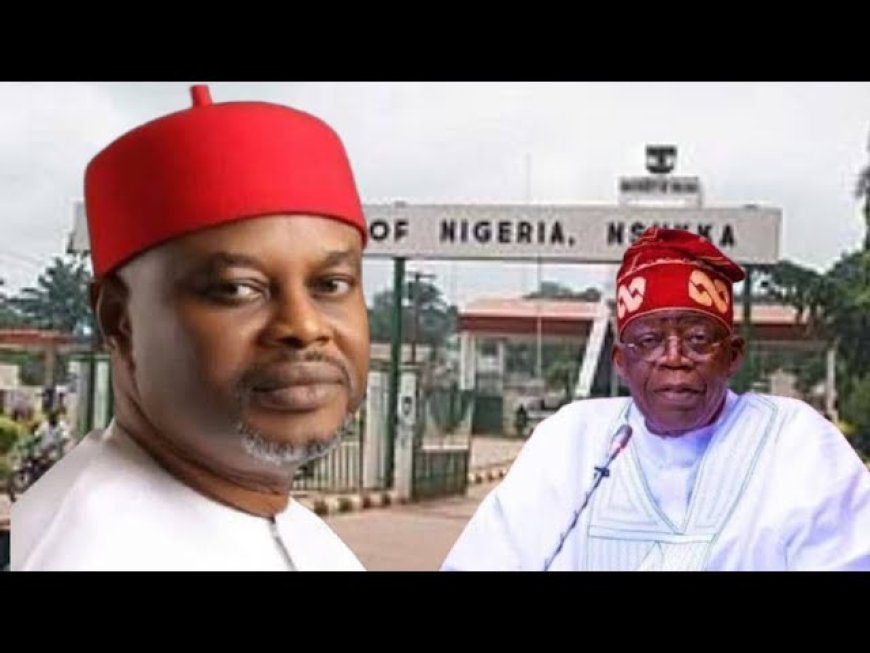
"One of the hardest challenges today is committing to online certifications and distance learning to strengthen your skills especially because opportunities often appear unexpectedly, and preparation is key to seizing opportunities. Over the years, Nigerians must now shift from a culture that prizes certificates above all else to one that values substance over titles. We must replace ‘certificate chasing’ with what I call ‘sabification’ — a system where knowledge and industry experience are the true drivers of economic growth, and where certifications are then granted based on proven prior experiential learning rather than simply passing a course within the four walls of tertiary institutions. This is the time to value depth over decoration, competence over credentials. and I dare say, we need the blend of both worlds co-habiting so that we redefine our universities curriculum" ... Dr Ohio O. Ojeagbase
Justice Is Service, Not Status: Jesus redefined leadership forever when He said, “The greatest among you shall be your servant.” (Matthew 23:11). Power in the Kingdom is not domination; it is stewardship. The leader’s first duty is not to himself but to the people entrusted to him. God measures greatness by service, not by title.
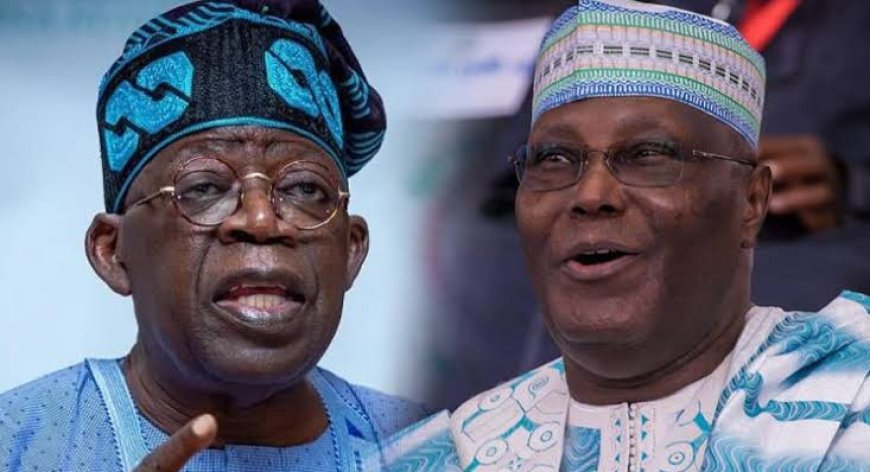
The Ministerial Screening Process in Nigeria:
1. The President Role: Initiates the process by nominating individuals for ministerial positions. Legal Basis: Section 147 of the 1999 Constitution (as amended) empowers the President to appoint ministers, subject to Senate approval.
2. The Senate of the National Assembly
Role: Constitutionally mandated to screen and confirm ministerial nominees. Process: Conducts public screening sessions where nominees are examined on qualifications, experience, integrity, and their vision for the ministry. Relevant Senate committees conduct hearings. Senators review documents, question nominees, and assess suitability. Outcome: The Senate votes to confirm or reject the nominee.
3. Relevant Senate Committees
Role: Carry out in-depth examination of nominees in specific sectors. Examples: Committee on Education for education-related portfolios, Committee on Petroleum for petroleum-related portfolios, etc.
4. Supporting Bodies & Processes (Informal but Important)
Security Agencies: Conduct background checks through the Department of State Services (DSS) and other relevant agencies to identify security risks. Ethics and Integrity Checks: Include consultation with the Code of Conduct Bureau (CCB) and anti-corruption bodies such as the Independent Corrupt Practices Commission (ICPC) or Economic and Financial Crimes Commission (EFCC). Civil Society & Media: Serve as watchdogs, scrutinizing nominees publicly to ensure accountability.
Summary: In Nigeria, whilst the Senate bears the constitutional duty to screen and confirm ministerial nominees, this process requires robust collaboration with relevant committees, security agencies, ethics bodies, and civil society. A breakdown at any stage compromises the integrity of governance, making it clear that safeguarding the nation requires a more transparent, independent, and accountable screening process. This now shows that they have not all done their job.
In conclusion
The Uche Nnaji case is not just a test of individual integrity, but a test of the entire system entrusted with safeguarding Nigeria’s leadership. When screening processes fail, when oversight functions collapse, and when institutions charged with ensuring accountability fall silent, the nation pays the price. This is a wake-up call for systemic reform. Nigeria must establish a more transparent, independent, and rigorous screening framework, one that removes undue political influence, strengthens the role of ethics and security agencies, and actively involves civil society. Only then can we ensure that those entrusted with power truly embody justice, integrity, and service. In safeguarding our processes, we safeguard the future of the nation itself.
Kindly share this story:
Contact: report@probitasreport.com
Stay informed and ahead of the curve! Follow The ProbitasReport Online News Report on WhatsApp for real-time updates, breaking news, and exclusive content especially when it comes to integrity in business and financial fraud reporting. Don't miss any headline and follow ProbitasReport on social media platforms @probitasreport
©2025 ProbitasReport - All Rights Reserved. Reproduction or redistribution requires explicit permission.
What's Your Reaction?







